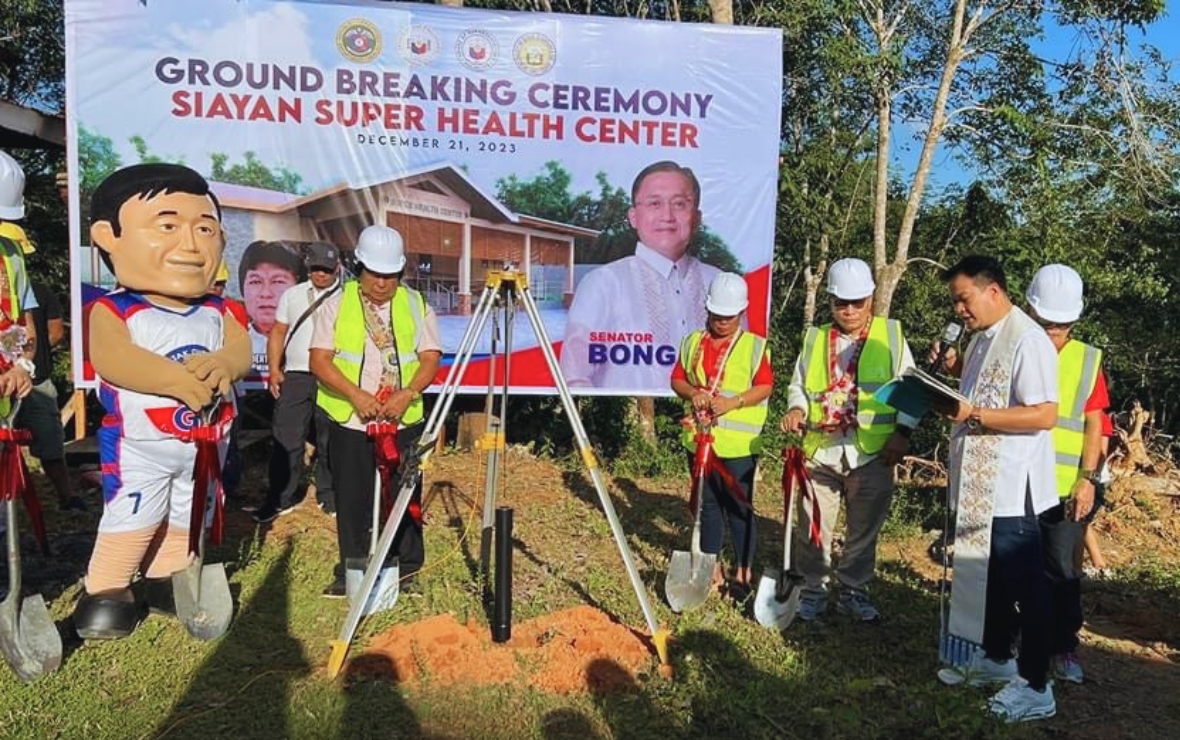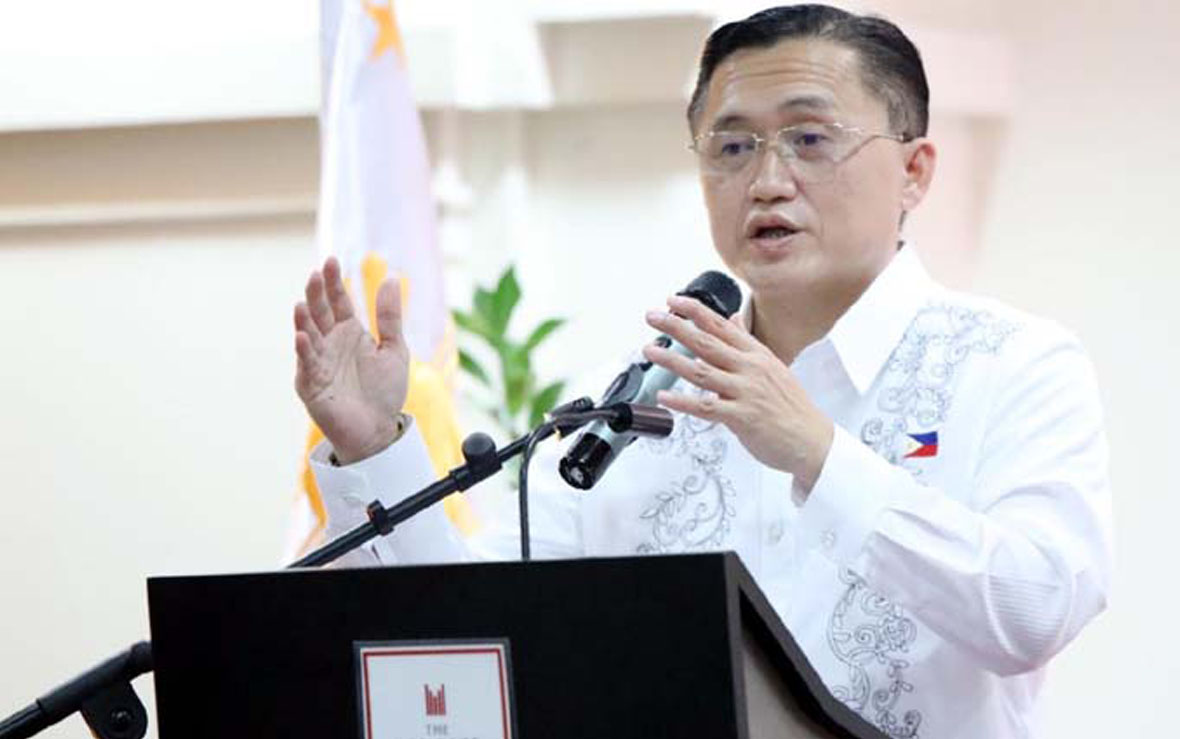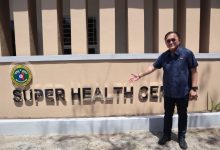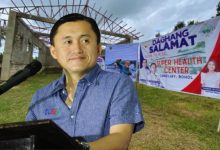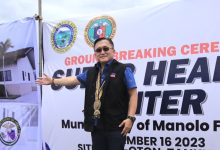SENATOR Christopher “Bong” Go, chairperson of the Senate Committee on Health and Demography, lauded the local government unit of Siayan, Zamboanga del Norte, for the successful groundbreaking of its Super Health Center in Barangay Gunyan on Thursday, December 21.
Local officials, including Mayor Alberto Bongcawel and Congresswoman Glona Labadlabad, among others attended the event.
According to Go, this event marks a pivotal step in reinforcing the country’s health infrastructure. He also added that this center is set to play an essential role in strengthening the country’s health system especially in the grassroots.
“The Super Health Center in Siayan is not just a mere health facility; it represents a substantial leap forward in the Philippine healthcare system by bringing primary care, medical consultations, and early disease detection to the grassroots level,” he added.
These centers are strategically designed to be more accessible to Filipinos, thereby ensuring that essential health services are within reach of many.
The facility will offer a wide range of services, including database management, outpatient, birthing, isolation, diagnostic (laboratory: x-ray and ultrasound), pharmacy, and an ambulatory surgical unit. Additionally, the Super Health Center provides specialized services such as eye, ear, nose, and throat (EENT) service, oncology centers, physical therapy and rehabilitation centers, and telemedicine, allowing for remote diagnosis and treatment of patients.
Through the collective efforts of fellow lawmakers, LGUs, and the Department of Health (DOH), sufficient funds have been allocated for 307 Super Health Centers in 2022 and 322 Super Health Centers in 2023. DOH, the lead implementing agency, identifies the strategic areas where the centers will be constructed.
Go also highlighted the pivotal role of Super Health Centers in narrowing the gap in existing health facilities in the country.
He emphasized their primary functions, which include early disease detection and hospital decongestion, saying, “These functions are integral to providing timely and effective healthcare services, ensuring that medical care is not just available, but also efficient and proactive.”
Currently, eight Super Health Centers were funded in Zamboanga del Norte.
Furthermore, the senator also highlighted other health initiatives aimed at bolstering the country’s healthcare system. Among these is the Malasakit Centers program, which aims to provide convenient medical assistance to indigent patients.
The center is a one-stop shop that streamlines the process of acquiring aid from the relevant agencies, namely the DOH, Philippine Health Insurance Corporation, Philippine Charity Sweepstakes Office, and the Department of Social Welfare and Development. It seeks to reduce a patient’s hospital bill to the lowest possible amount by covering various services and expenses.
Republic Act No. 11463 or the Malasakit Centers Act of 2019 was principally authored and sponsored by Go. There are currently 159 centers nationwide, including those at Jose Rizal Memorial Hospital in Dapitan City and the Zamboanga del Norte Medical Center in Dipolog City, that have helped around ten million indigent Filipinos, according to the DOH.
“Sa mga pasyente rito, hindi niyo na po kailangang bumiyahe para pumila sa iba’t ibang opisina para makahingi ng tulong mula sa gobyerno. Kung may bill kayo, ilapit niyo lang ‘to sa Malasakit Center. Wala itong pinipili. Basta poor at indigent patient ka, qualified ka,” assured Go.
Go is also the principal sponsor and one of the authors of the Regional Specialty Centers Act, which seeks to establish specialized medical centers across different regions, further decentralizing and enhancing healthcare services.
The Regional Specialty Centers Act assumes a vital role in the healthcare legislative priorities of the Marcos Administration, as outlined in the Philippine Development Plan for the years 2023 to 2028. This law shall create Regional Specialty Centers within pre-existing regional hospitals under the jurisdiction of DOH.

